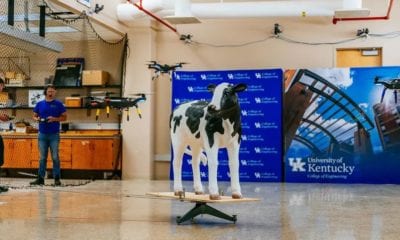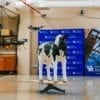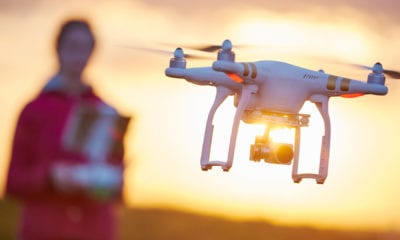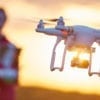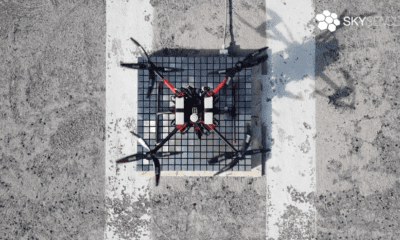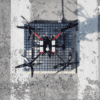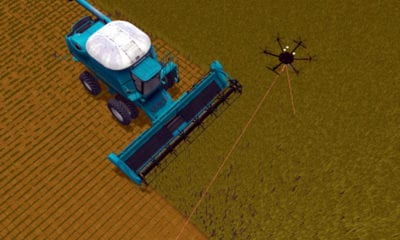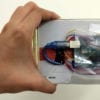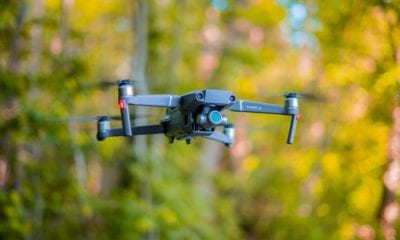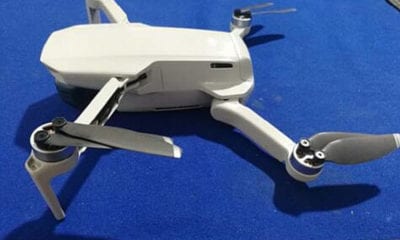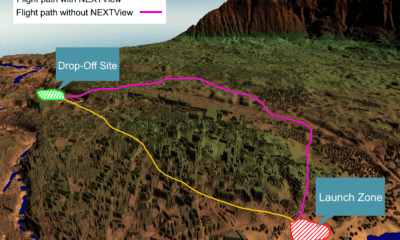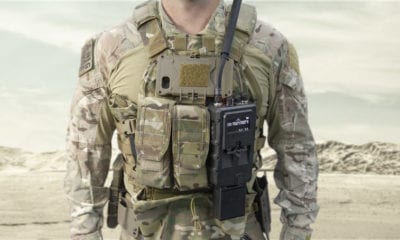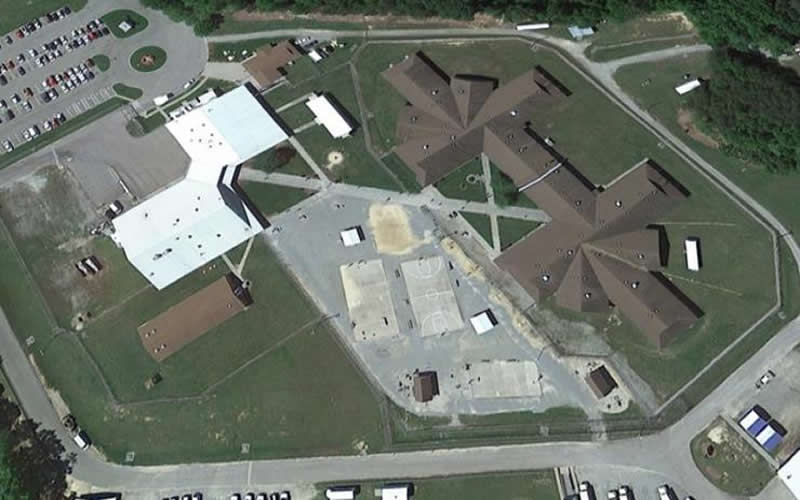
News
A Mobile App to Counter Drone and Human Contraband Drops
A Mobile App to Counter Drone and Human Contraband Drops
While like Amazon and Google are just beginning to test drone delivery services worldwide, criminals have already been receiving packages through drones. According to a Duke press release, many of the larger prison facilities in North Carolina have experienced several attempts at smuggling contraband via unmanned aircraft: e.g., Scotland Correctional Institution near Laurinburg experienced smuggling in contraband such as cell phones and tobacco through the use of drones. Commercial anti-drone systems are too expensive to roll out on a state-wide basis or a state-level budget.
Lamenting the fact Loris Sutton, chief of security for the North Carolina state prison system says, “It’s been sporadic for our facilities, but obviously even a single incident is too many for us,” and turned to Professor Cummings to help combat this problem.
Mary “Missy” Cummings, professor of electrical and computer engineering at Duke, is one of the nation’s leading experts in autonomous vehicles. As one of the Navy’s first female fighter pilots and a doctorate in human-computer system interaction, flying drones are her specialty. In 2017, Cummings received a National Science Foundation grant in partnership with landscape architects at Clemson University to develop an affordable and aesthetic system for deterring unwanted drones.
Cummings and her team of students has been developing an alerting system that uses microphones and thermal cameras to detect unwanted drones and the people flying them. A “bird’s nest,” developed by Clemson University landscape architects, houses and hides the electrical components of the drone detection system.
Chunge Wang, a Duke undergraduate student majoring in computer science, created a new app interface for the equipment especially customized for needs of prisons, dubbed Prison Reconnaissance Information System (PRIS). In hardware consists of a microphone connected to a Raspberry Pi—a simple, inexpensive computer board originally developed to teach basic programming—a data server and a smart phone, costing less than $1,000 total.
The Raspberry Pi is loaded with a machine learning algorithm that constantly processes the data collected from the microphone to isolate the sounds a drone makes from background noise. When it detects the buzzing whir of a drone’s propellers, it sends a notification to an app loaded on smart phones carried by the prison’s security personnel.
Eager to test PRIS out in a real-world environment, Cummings, Wang and their team recently visited one of North Carolina’s more remote prison facilities, Dan River Prison Work Farm in Caswell County. The group spent several hours collecting data and actually seeing how well the system was able to collect data and display it through the app.
Cummings revealed, “We’re still trying to figure out some problems with false alarms caused by helicopters and weed eaters, both of which show up at prisons from time to time but when we tested at a local airport, we were excited to see that we could filter out flying airplanes. We did have some trouble with airplanes that were taxiing, but you’re not very likely to run into those at a prison.”
The researchers were also able to get the app in the hands of security personnel to get their feedback on the user interface. Other than a few suggestions about additional features, the reviews have been universally positive.

This ‘bird’s nest’ was developed and built by Clemson landscape architects to house and hide the electrical components of the developing drone detection system
Cummings adds, “This low-cost, easy-to-use technology has the potential to put early warning drone detection capability into the hands of managers of small public venues and prison wardens, which substantially benefits public safety.”
The team will be beta testing the system with the Town of Cary later this summer, and eventually with Duke Gardens. If the initial results are promising, Sutton hopes the emerging system would be able to extend to monitoring the walls of North Carolina’s prisons.

PRIS Architect
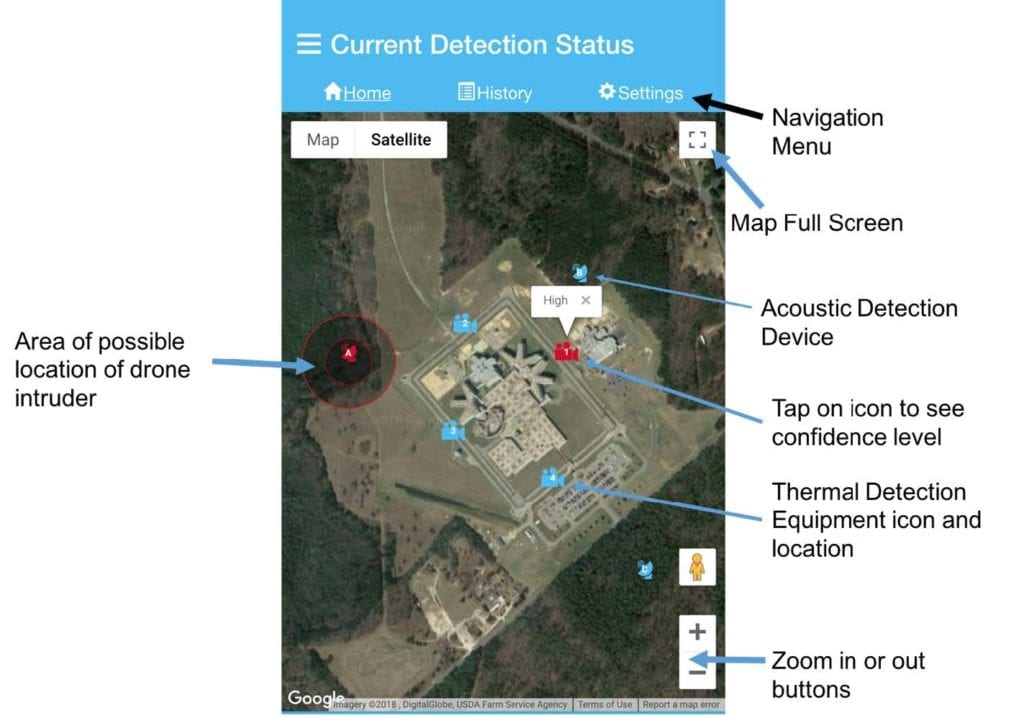
A screenshot taken from the prototype app that controls the drone detection system
The work is supported by NSF and the North Carolina Department of Public Safety.
Citation: “A Mobile Alerting Interface for Drone and Human Contraband Drops”- Chunge Wang and Mary L. Cummings. AIAA AVIATION, 2019. https://hal.pratt.duke.edu/sites/hal.pratt.duke.edu/files/u35/final-chungeAIAA2019.pdf



